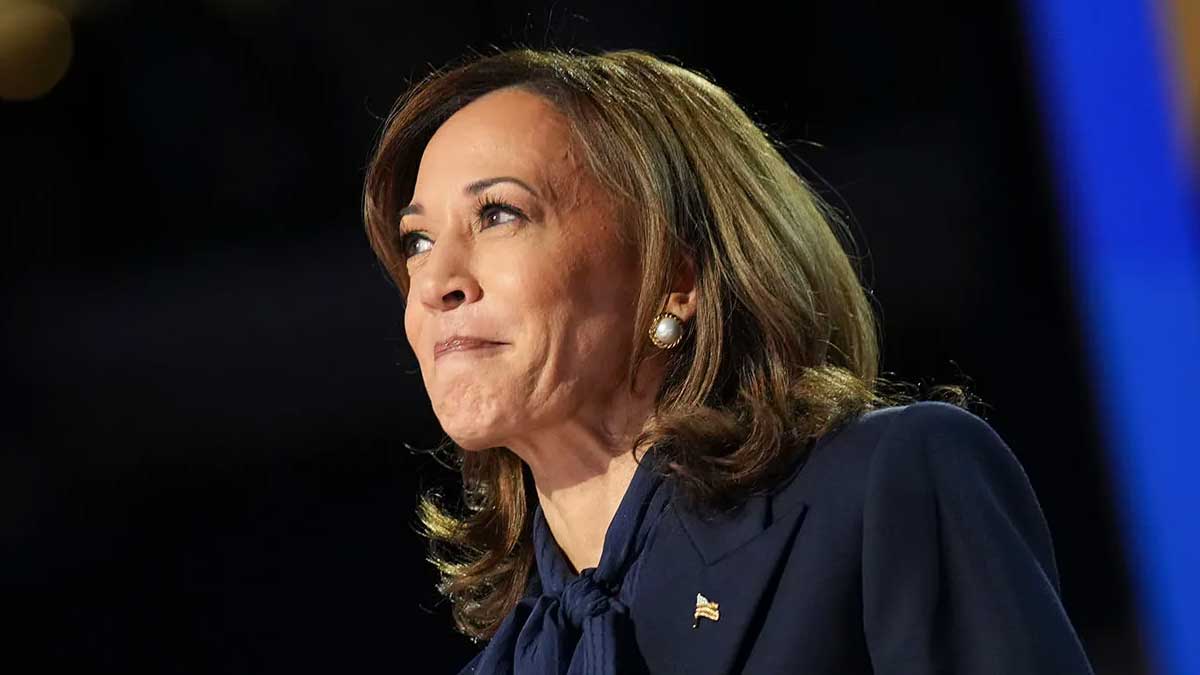- Home
- Billionaires
- Investing Newsletters
- 193CC 1000
- Article Layout 2
- Article Layout 3
- Article Layout 4
- Article Layout 5
- Article Layout 6
- Article Layout 7
- Article Layout 8
- Article Layout 9
- Article Layout 10
- Article Layout 11
- Article Layout 12
- Article Layout 13
- Article Layout 14
- Article Sidebar
- Post Format
- pages
- Archive Layouts
- Post Gallery
- Post Video Background
- Post Review
- Sponsored Post
- Leadership
- Business
- Money
- Small Business
- Innovation
- Shop
Recent Posts
Harris Defends Biden’s Economy in CNN Interview

In her first significant interview as the Democratic presidential nominee, Vice President Kamala Harris addressed the economic challenges that have dominated discussions about the Biden administration’s performance. Speaking with CNN anchor Dana Bash on Thursday, Harris tackled criticisms head-on, particularly those related to inflation and rising costs of living, such as increased grocery and housing prices. These issues have been a focal point of voter dissatisfaction, with some longing for the lower prices experienced during the Trump administration. Harris defended the administration’s actions, emphasizing that the economic difficulties they inherited were exacerbated by the pandemic. She highlighted the efforts made to stabilize and recover the economy during an unprecedented health crisis, pointing to recent signs of improvement, including declining inflation rates, as evidence of their success.
Harris was candid about the work that remains, acknowledging that while significant progress has been made, the task is far from complete. She outlined her vision for an “opportunity economy” that would prioritize middle-class support and economic equity from day one of her presidency. Central to her economic platform are measures aimed at increasing housing affordability and combating price gouging—issues that resonate with many Americans struggling with the current cost of living. Harris positioned these initiatives as expansions of the Biden administration’s efforts, suggesting a more aggressive approach to tackling these challenges if she were to take office.
The economic narrative between Harris and former President Donald Trump is complex, reflecting broader partisan divisions over the causes and consequences of the current economic climate. Trump’s administration is often credited with robust stock market performance and historically low unemployment rates; however, these achievements are contrasted with the severe economic downturn that marked the end of his presidency due to the COVID-19 pandemic. Biden, on the other hand, has overseen a period of economic recovery, marked by substantial job growth, but also by persistent inflation and weakened consumer confidence. Harris acknowledged these difficulties but argued that they are largely a result of the pandemic’s impact, suggesting that the administration has been successful in mitigating the worst of these challenges.
In addition to economic issues, Harris addressed several other critical areas of policy, further delineating her platform. She expressed a strong commitment to passing a bipartisan border bill, a point of contention given the spike in unlawful border crossings during the early years of Biden’s presidency. Harris has faced criticism for her role in addressing the root causes of migration from Central America, a responsibility that Biden assigned to her early in his administration. In her defense, Harris cited a decrease in unlawful migration as a direct result of her efforts, positioning herself as an advocate for comprehensive immigration reform. Furthermore, she clarified her stance on fracking, a topic that has been a flashpoint in the debate over climate change. Harris, who previously supported banning fracking, now advocates for a balanced approach that allows for the growth of a green energy economy without entirely eliminating fracking. This shift reflects her broader strategy of pragmatic governance, balancing environmental concerns with economic realities.
On the international stage, Harris reaffirmed her unwavering support for Israel amid the ongoing conflict with Hamas. She emphasized that her commitment to Israel’s right to self-defense is non-negotiable, even as she acknowledged the tragic loss of innocent Palestinian lives in the conflict. Harris did not propose any significant departures from the Biden administration’s policy, signaling continuity in the U.S. approach to the Middle East. Her remarks underscored a delicate balancing act, as she navigates the complexities of a region where U.S. foreign policy has long been a source of intense debate.
Harris also used the interview to speak to her relationship with President Biden, particularly in light of concerns about his age and mental fitness. She recounted a poignant moment when Biden informed her of his decision to step down, emphasizing his clarity and commitment to endorsing her as his successor. Harris defended Biden’s capability to continue serving, citing his intelligence, commitment, and judgment as qualities that make him a strong leader. This part of the interview was not only a defense of Biden’s record but also an implicit argument for her own readiness to step into the role of president if necessary.
In addressing her interactions with Trump, Harris took a measured tone, criticizing his divisive rhetoric without dwelling too heavily on his more inflammatory comments. Despite not having met Trump in person, Harris was clear in her assessment that his agenda is aimed at dividing the nation. When prompted to respond to Trump’s derogatory remarks about her, she dismissed them as part of a “tired playbook,” signaling her intent to focus on substantive policy discussions rather than personal attacks.
The interview also touched on Tim Walz, Harris’ vice presidential candidate, who has faced scrutiny over past statements and campaign promises. Walz acknowledged mistakes he has made in the past, including inaccuracies regarding his military service and the circumstances of his children’s births. Despite these missteps, Walz defended his integrity and values, arguing that his intentions have always been in the right place. He framed the criticisms as minor compared to the broader contrast between his policies and those of Trump, emphasizing his commitment to honesty and transparency moving forward.
Trump’s response to the interview was swift and harsh. On his social media platform, Truth Social, he dismissed Harris’ performance as “BORING!!!” and criticized her answers as incoherent. His campaign further attacked Harris for not addressing issues like crime and her past support for reallocating police resources, branding her as a “San Francisco radical.” The criticism is part of a broader strategy by the Trump campaign to paint Harris as out of touch with mainstream America, a theme they have pushed since her nomination.
Harris’ decision to sit down with CNN came after weeks of criticism from Trump and other opponents who accused her of avoiding the media. Prior to this interview, Harris had mostly engaged with the press through informal interactions and interviews with social media influencers, which led to accusations that she was “ducking the media.” The Trump campaign seized on this narrative, questioning Harris’ ability to handle issues like the economy and border security if she could not face traditional media scrutiny. The CNN interview was, therefore, a critical moment for Harris to reassert her presence on the national stage and clarify her positions on key issues as she seeks to solidify her candidacy heading into the election.
Recent Posts
Categories
- 193cc Digital Assets2
- 5G1
- Aerospace & Defense46
- AI37
- Arts3
- Banking & Insurance11
- Big Data3
- Billionaires449
- Boats & Planes1
- Business328
- Careers13
- Cars & Bikes76
- CEO Network1
- CFO Network17
- CHRO Network1
- CIO Network1
- Cloud10
- CMO Network18
- Commercial Real Estate7
- Consultant1
- Consumer Tech180
- CxO1
- Cybersecurity68
- Dining1
- Diversity, Equity & Inclusion4
- Education7
- Energy8
- Enterprise Tech29
- Events11
- Fintech1
- Food & Drink2
- Franchises1
- Freelance1
- Future Of Work2
- Games141
- GIG1
- Healthcare78
- Hollywood & Entertainment186
- Houses1
- Innovation42
- Investing2
- Investing Newsletters4
- Leadership65
- Lifestyle11
- Manufacturing1
- Markets20
- Media193
- Mobile phone1
- Money13
- Personal Finance2
- Policy567
- Real Estate1
- Research6
- Retail1
- Retirement1
- Small Business1
- SportsMoney33
- Style & Beauty1
- Success Income1
- Taxes2
- Travel10
- Uncategorized8
- Vices1
- Watches & Jewelry2
- world's billionaires418
Related Articles
Trump Moves $4B Stake in Truth Social Parent, Stock Drops 6%
Donald Trump recently transferred his 57% stake in Trump Media & Technology...
By 193cc Agency CouncilDecember 20, 2024House Rejects Trump-Backed Funding Bill, Shutdown Looms
The U.S. House of Representatives rejected a new government funding bill on...
By 193cc Agency CouncilDecember 20, 2024Trump Named Time’s Person of the Year for Second Time
On Thursday, Time magazine honored Donald Trump as its “Person of the...
By 193cc Agency CouncilDecember 12, 2024Meta Donates $1 Million to Trump’s Inaugural Fund
Meta, the parent company of Facebook and Instagram, has confirmed a $1...
By 193cc Agency CouncilDecember 12, 2024















Leave a comment